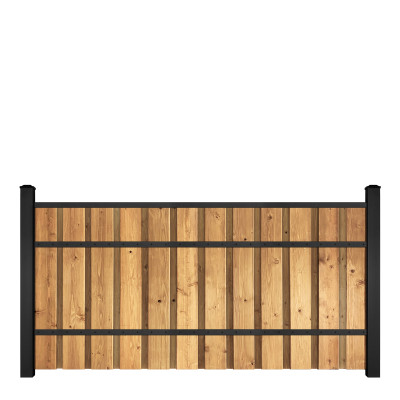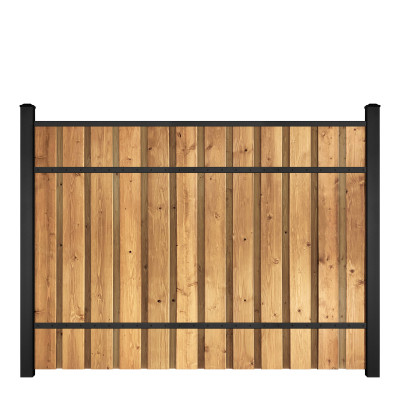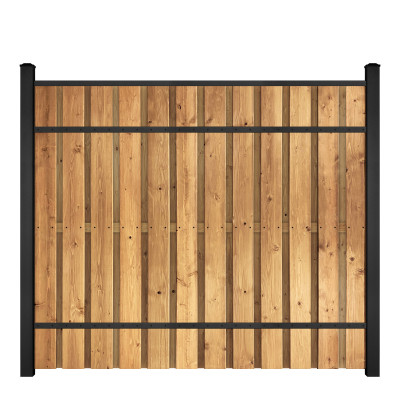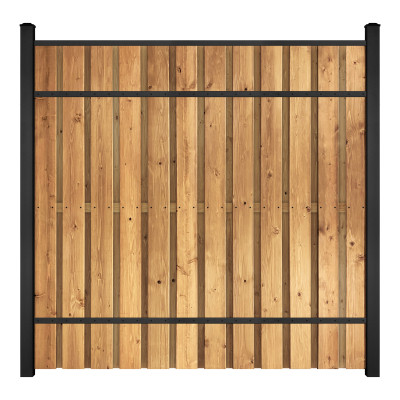Once all of your Fence-boards have been secured to Stringers, this is when you would install the Optional Aluminum Cap Rail.
Simply slip on the cap rail to the top of the boards in the finished fence panel and fasten with 2 wood screws on each end on one side of the panel and one screw on the opposite side right in the middle making sure that you are drilling into a fence board on all.
There are 4 extra self drilling screws in each stringer bag that were used to fasten the brackets to the posts that can be used here to drill though the cap rail and into the top of the fence boards and fasten the Cap rail to the top of the fence board. OR simply drill a 3/16” hole with a metal drill bit through the cap rail, (one on both ends on one side and one in the center on the other side), and then use the Slipfence wood screws to fasten the cap rail to the top of the fence boards. Either will work.



